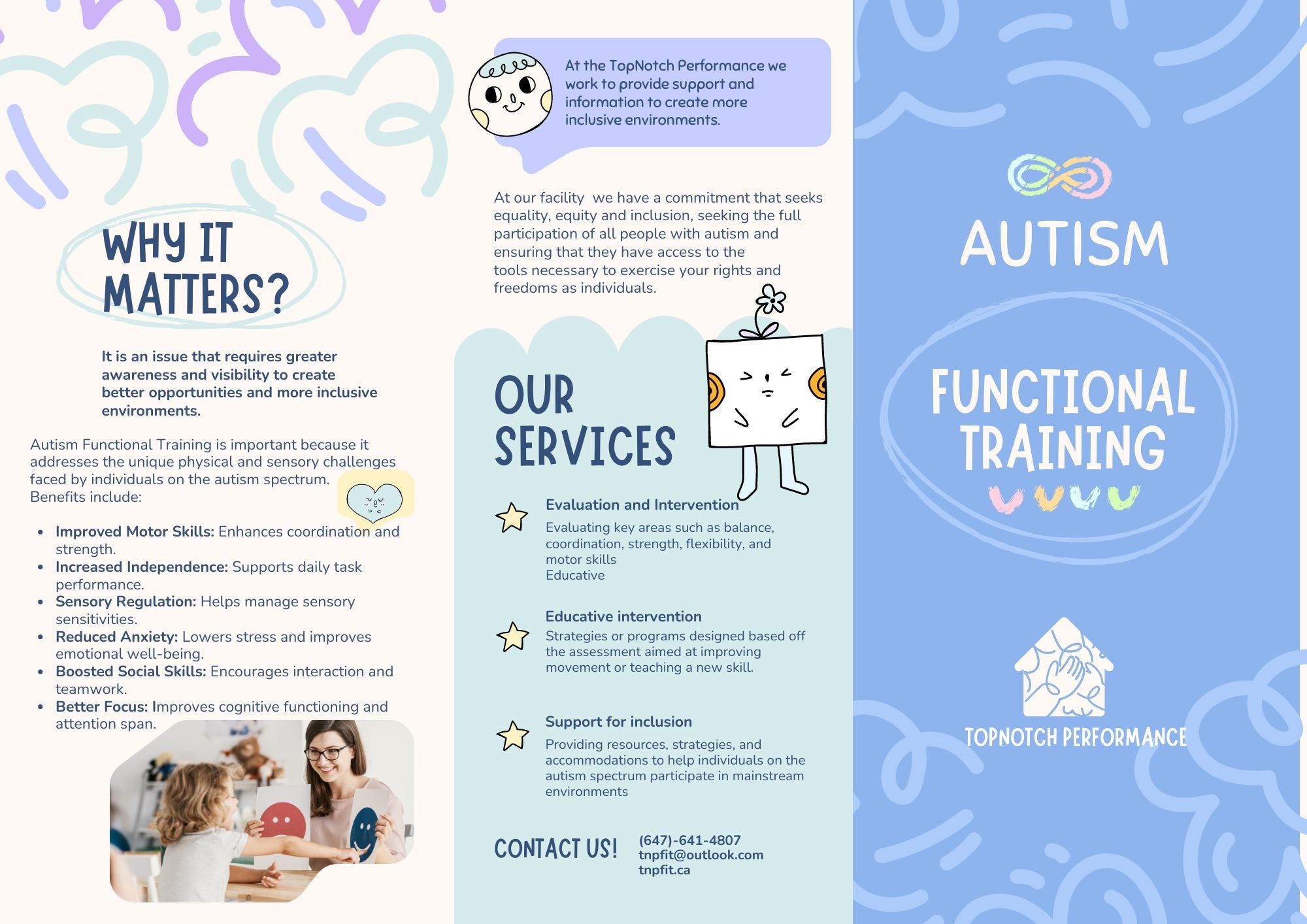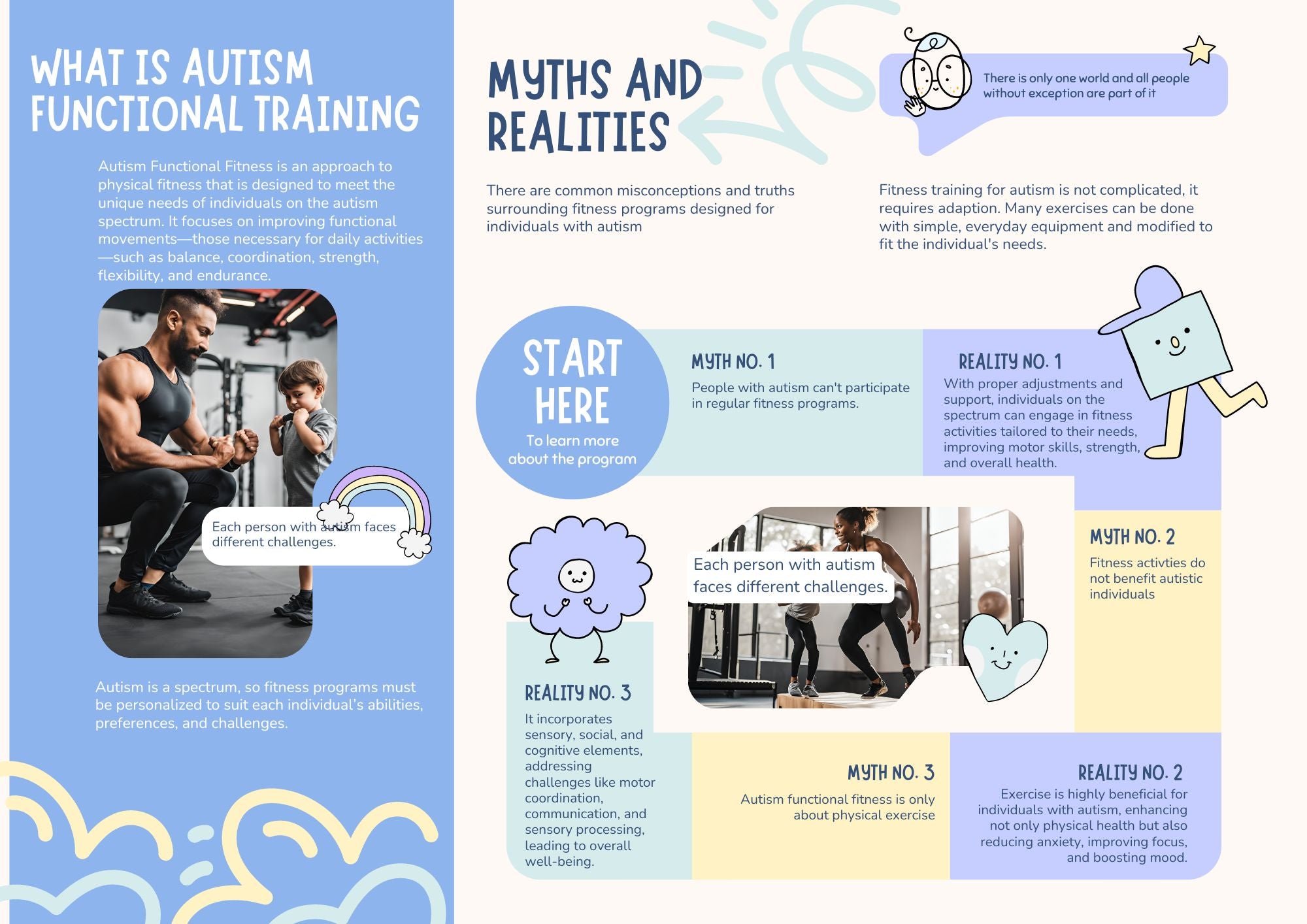Collapsible content
What is Autism Functional Fitness (AFF)
Autism Functional Fitness is a specialized approach to physical fitness designed to meet the unique needs of individuals with autism. It focuses on improving functional movements—such as balance, strength, coordination, and flexibility—that are essential for daily living. The programs are often tailored to accommodate sensory sensitivities, motor challenges, and communication needs, with the goal of enhancing physical health, independence, and overall quality of life for individuals on the autism spectrum.
Importance of Fitness in ASD
Functional fitness is important for individuals with autism because it helps improve the movements needed for daily tasks, like balance, coordination, and strength. These exercises not only promote independence in everyday activities but also aid in managing sensory sensitivities, reducing stress, and improving focus. By supporting both physical and mental well-being, functional fitness enhances the overall quality of life for autistic individuals.
Key Components of Autism Functional Fitness
Functional Movements: Focus on improving everyday movements like balance, coordination, strength, and flexibility to help individuals perform daily tasks more easily.
Sensory-Friendly Environments: Create workout spaces that are calm and adapted to sensory sensitivities, with soft lighting, minimal noise, and familiar routines.
Motor Skill Development: Target exercises that enhance fine and gross motor skills, helping with tasks like walking, grasping, and posture.
Structured Routines: Use consistent, predictable routines to reduce anxiety and provide a sense of comfort and familiarity during fitness sessions.
Individualized Approach: Tailor programs to each person’s unique needs, abilities, and preferences, allowing for personalized support.
Communication Support: Incorporate visual aids, communication boards, or simple instructions to ensure that participants can understand and follow the exercises.
Autism Functional Training Assessment: Evaluating Needs and Abilities
The assessment is a key step in designing an effective fitness program for individuals on the autism spectrum. It begins with evaluating the person's physical abilities, including balance, strength, flexibility, and motor skills, to identify specific areas that need improvement. The assessment also considers sensory sensitivities, such as reactions to noise, light, or touch, which can affect participation in physical activities.
It also assesses communication needs, determining whether the individual requires visual aids, simple instructions, or other forms of support. Behavioral tendencies and emotional regulation are also evaluated to ensure the fitness program is structured in a way that minimizes anxiety and provides a comfortable, motivating environment. This comprehensive assessment ensures that the training plan is tailored to each person’s unique abilities and challenges, leading to better outcomes in their functional fitness journey.
Why TopNotch Performance
We offer a specialized fitness program designed to help individuals with autism improve motor skills, strength, and coordination in a sensory-friendly environment. Our experienced trainers create personalized plans tailored to each child’s unique needs, while promoting independence and boosting confidence. With a focus on both physical and emotional well-being, our program helps develop essential life skills in a calm, supportive space.


